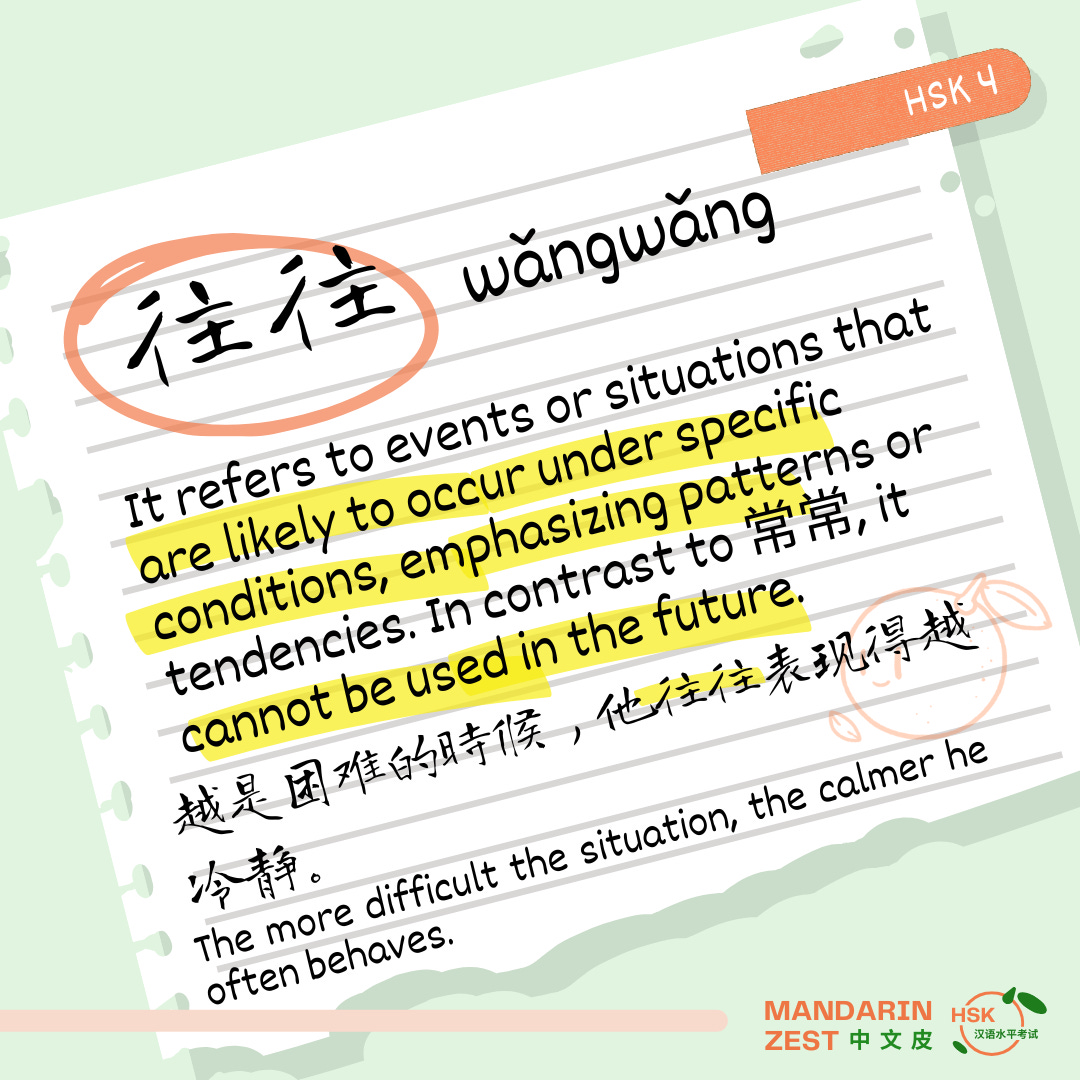The adverb 往往 (wǎngwǎng) describes frequency and repetition just like 常常, but with distinct nuance and usage contexts.
往往 refers to events or situations that are likely to occur under specific conditions, emphasizing patterns or tendencies. The action after 往往 happens objectively and irregularly, and in contrast to 常常, it cannot be used in the future. It also suggests a more predictive or habitual tone than 常常.
Sample Sentences
越是困难的时候,他往往表现得越冷静。The more difficult the situation, the calmer he often behaves.
我上大学的时候,往往一个星期给父母打一次电话。When I was in college, I would typically call my parents once a week.
老师布置作业的时候,学生们往往会抱怨。When the teacher assigns homework, students often complain.
In a Text
在公司管理中,领导者往往需要平衡团队成员的需求与公司的目标,同时常常与员工保持良好的互动。一个成功的管理者常常会定期与员工沟通,了解他们的想法和困难。面对市场的变化,企业往往需要迅速调整战略以保持竞争力,因此常常通过数据分析来辅助决策。
辅助 (fǔzhù): to assist, to aid
In company management, leaders often need to balance the needs of team members with the goals of the company while frequently maintaining good interactions with employees. A successful manager often communicates with employees regularly to understand their thoughts and challenges. In response to market changes, companies often need to quickly adjust strategies to stay competitive and frequently rely on data analysis to aid decision-making.






